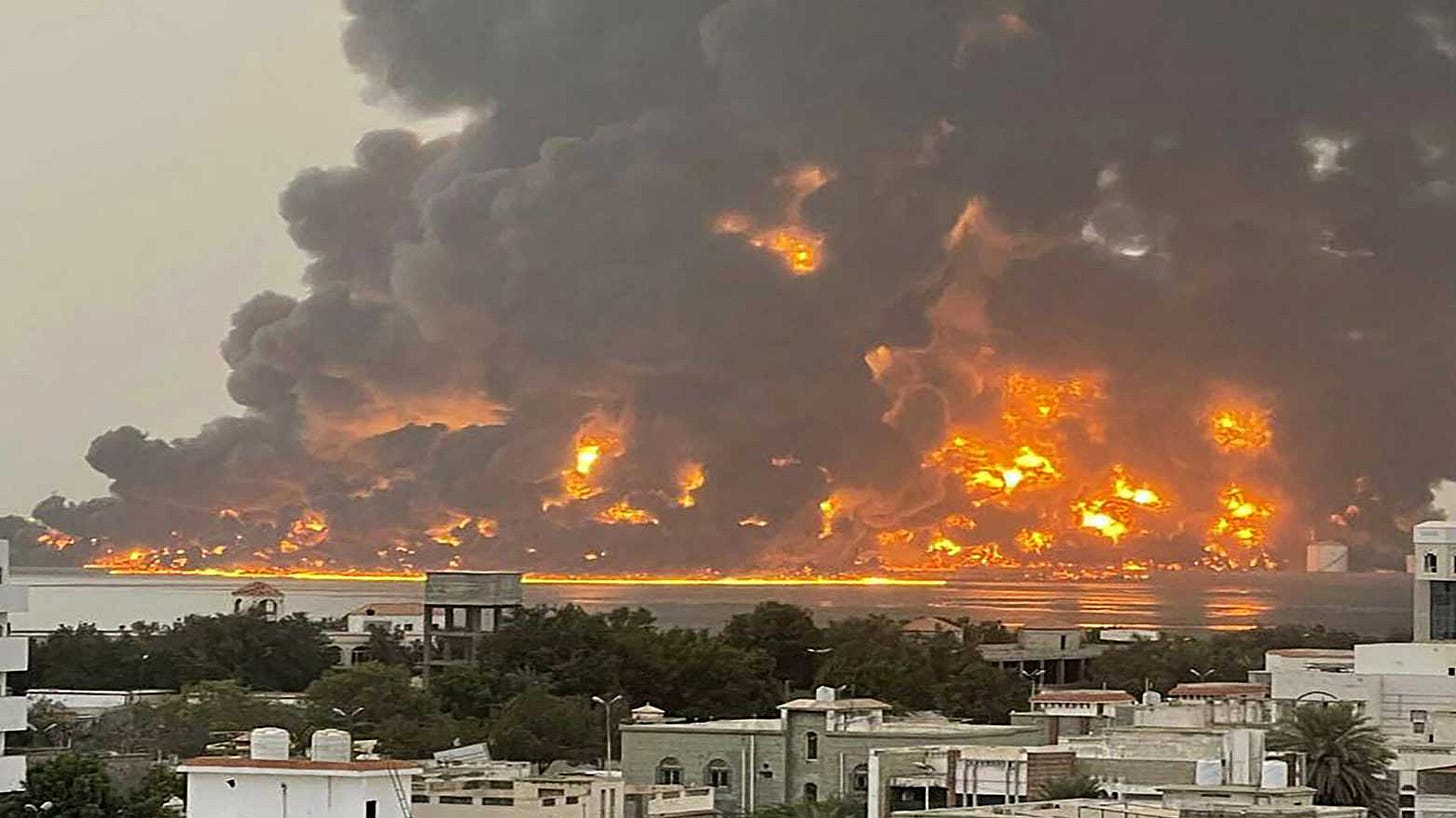Is a direct war between Israel and the Houthis on the horizon?
The recent Israeli strikes on the Hodeida Port could mark a significant turning point for the conflict.

The Israel Defense Forces (IDF) have confirmed their first direct naval attacks on Yemen's Houthi forces, targeting the Port of Hodeida.
The overnight strikes reportedly hit two piers, according to Houthi sources.
The IDF justified the attacks by alleging that the Houthis were using the Hodeida Port to smuggle Iranian weapons.
Following the strikes, Israeli Defense Minister Israel Katz threatened a broader Israeli naval and air blockade of Yemen, which would include further strikes on Houthi-controlled maritime ports to deter countries or organizations from shipping through Yemeni waters.
In a post on X (formerly Twitter), Katz stated:
“I congratulate the Navy on the successful attack on the port of Hodeidah in Yemen. Israel's long arm, both in the air and at sea, will reach everywhere. We warned the Houthi terrorist organization that if they continue to fire at Israel, they will face a powerful response and enter a naval and air blockade. That's what we did today — and we will continue to do so in the future.”
An IDF spokesperson elaborated further in another post on X, stating:
“Warning to all those present in the seaports controlled by the terrorist Houthi regime: Ras Isa Port, Hodeidah Port, Al-Salif Port.”
Yemen’s strategic location cannot be overstated. The country lies along the Red Sea, where approximately 12% of global trade passes, and borders the critical maritime chokepoint of Bab el-Mandeb. Long before the current civil war, Yemen had been a port-dependent economy.
When the Houthis took control of Sanaa in 2015, they quickly seized the country’s ports, which became lifelines for the militia.
The most significant of these is the Port of Hodeida. Located on the Red Sea coast, it has served as the primary entry point for international aid into Yemen. However, it has also been used to smuggle weapons to the Houthis from Iran.
As a result, the Arab coalition intervened to recapture the port, leading to the 2018 Battle of Hodeida. These efforts were stalled by a UN-brokered ceasefire in December of that year, which called for the withdrawal of all warring parties from the port. However, only the internationally recognized government of Yemen withdrew its forces in 2021, effectively ceding control to the Houthis.
While the Israeli naval strikes on Hodeida are unprecedented, they are unlikely to deter the Houthis. According to the Jerusalem Post, Israeli intelligence believes that the attacks are unlikely to put a complete stop to Houthi missile and drone fire on Israel.
Instead, with their most important port now under threat—and additional ports potentially in the crosshairs—the Houthis may be emboldened to escalate their conflict with Israel.
Although the United States had also been targeting the Houthis, a ceasefire reached in May ended hostilities between Washington and Sanaa, leaving Israel to confront the Iranian proxy alone. The Houthis are likely to exploit this shift in the regional power dynamic.
As for Iran, the Islamic Republic remains committed to supporting its Yemeni allies to maintain a strategic foothold on the Red Sea. While it is unlikely that Tehran will send Islamic Revolutionary Guard Corps forces directly to Yemen—something it would likely have done by now—it will almost certainly increase its material and strategic support as tensions with Israel continue to rise.




